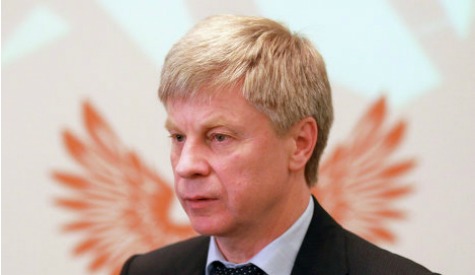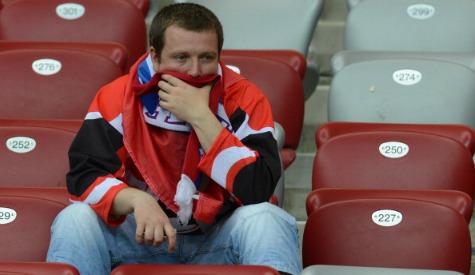 Russian Olympic Committee (ROC) executive director Nikolai Tolstykh has been elected as the new President of the country's football association and is set to play a leading role in the build-up to the FIFA World Cup there in 2018.
Russian Olympic Committee (ROC) executive director Nikolai Tolstykh has been elected as the new President of the country's football association and is set to play a leading role in the build-up to the FIFA World Cup there in 2018.
Tolstykh, 56 (pictured top), had previously served as the head of the Russian Professional Football League for 18 years until being forced from the role in 2010 when then Russian Football Union (RFU) President Sergei Fursenko outlawed the organisation.
Tolstykh, former player with Dynamo Moscow between 1974 and 1983, then joined the ROC as deputy executive director before being promoted last year.
Tolstykh won 148 votes, 24 more than his main rival, the Russian Premier League chief Sergei Pryadkin.
A second vote was needed after neither gained the two-thirds majority essential in the first round.
Five candidates in total had been eliminated in the first round of voting.
Tolstykh's support from the Russian Sports Minister Vitaly Mutko helped him to succeed Fursenko, who quit after Russia's disappointing European Championship campaign this summer.
"I would like to thank everyone for the trust shown in me to head the Russian Football Union – and it is a union – of people who love football and are faithful to it," said Tolstykh, who was also the RFU's Vice-President.
"It's a huge responsibility, and I'll do everything that depends on me... to help Russian football develop successfully." Tolstykh is believed to share many sympathies with some of the views of Mutko, who lambasted a number of measures taken by Fursenko during his time in charge.
Tolstykh is believed to share many sympathies with some of the views of Mutko, who lambasted a number of measures taken by Fursenko during his time in charge.
As President, Tolstykh will lead the RFU through a crucial period as Russian football seeks to develop youngsters capable of being part of the national team at the World Cup in 2018.
Fursenko had said that the country should be aiming to win that competition, but with just two players – Alan Dzagoev and Aleksandr Kokorin – under the age of 25 selected for this summer's European Championship the prospect of that happening seems quite some way off.
The RFU also has a suspended six-point penalty hanging over the national team for qualifiers for the European Championship in 2016 after their supporters' behaviour during this summer's tournament.
Racism in Russian football has also been a prominent issue of late, with a number of high profile incidents at Premier League games making headlines beyond the country – and that is something the RFU will be under pressure to help eliminate before 2018.
By David Gold
Source: www.insidethegames.biz
